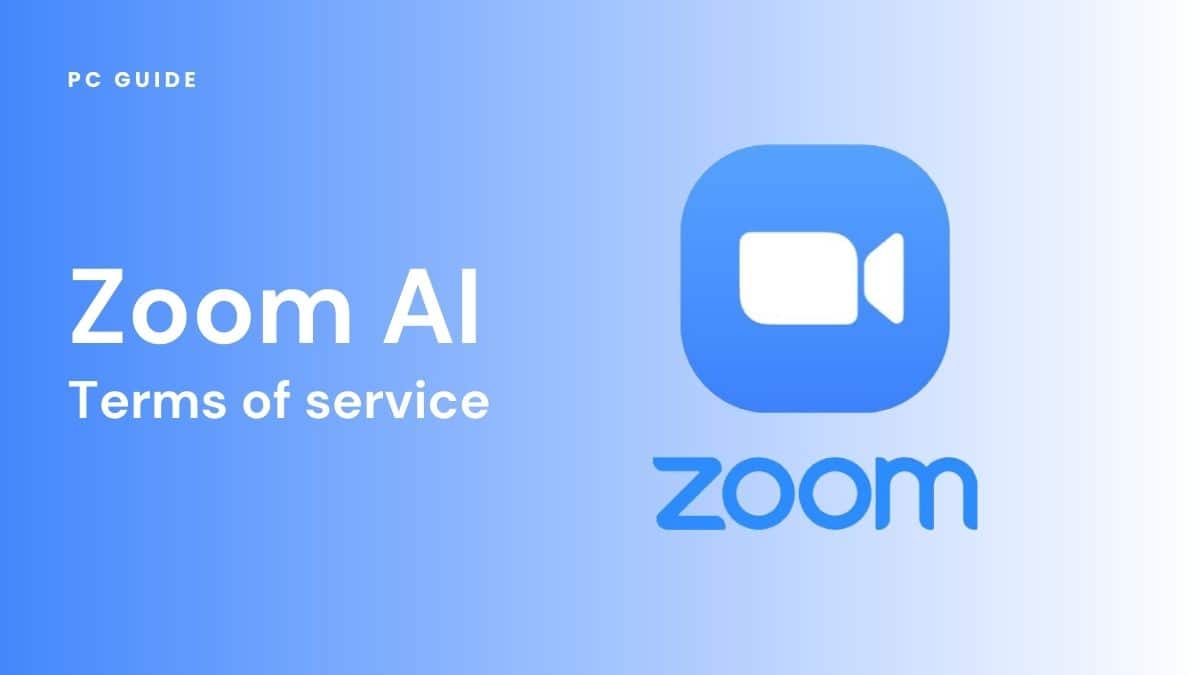Zoom AI training controversy – explained

Table of Contents
Is Zoom AI training artificial intelligence models on your user data? Zoom’s recent terms of service changes have sparked concern over the use of machine learning in video calls.
Is Zoom using AI?
In March 2023, video conferencing software firm Zoom changed their terms of service agreement, with section 10 titled “Customer Content” becoming the topic of discussion.
Essential AI Tools
While sections 10.1 and 10.6 intended to make clear that “customers create and own their own video, audio, and chat content”, scepticism has surfaced regarding section 10.4.
10.4 Customer License Grant. You agree to grant and hereby grant Zoom a perpetual, worldwide, non-exclusive, royalty-free, sublicensable, and transferable license and all other rights required or necessary to redistribute, publish, import, access, use, store, transmit, review, disclose, preserve, extract, modify, reproduce, share, use, display, copy, distribute, translate, transcribe, create derivative works, and process Customer Content and to perform all acts with respect to the Customer Content: (i) as may be necessary for Zoom to provide the Services to you, including to support the Services; (ii) for the purpose of product and service development, marketing, analytics, quality assurance, machine learning, artificial intelligence, training, testing, improvement of the Services, Software, or Zoom's other products, services, and software, or any combination thereof; and (iii) for any other purpose relating to any use or other act permitted in accordance with Section 10.3. If you have any Proprietary Rights in or to Service Generated Data or Aggregated Anonymous Data, you hereby grant Zoom a perpetual, irrevocable, worldwide, non-exclusive, royalty-free, sublicensable, and transferable license and all other rights required or necessary to enable Zoom to exercise its rights pertaining to Service Generated Data and Aggregated Anonymous Data, as the case may be, in accordance with this Agreement.
https://explore.zoom.us/en/terms/
The concern here is the alleged use of customer data, such as a customer video meeting recording, for the purposes of training AI or tuning of algorithms. Try “What is ChatGPT – and what is it used for?” or “How to use ChatGPT on mobile” for further reading on ChatGPT.
Zoom clarifies AI stance via blog post
Zoom’s Chief Product Officer Smita Hashim assuaged these concerns in a blog post yesterday, saying that the firm “recently introduced two powerful generative AI features – Zoom IQ Meeting Summary and Zoom IQ Team Chat Compose – on a free trial basis to enhance your Zoom experience. These features offer automated meeting summaries and AI-powered chat composition. Zoom account owners and administrators control whether to enable these AI features for their accounts. When you choose to enable Zoom IQ Meeting Summary or Zoom IQ Team Chat Compose, you will also be presented with a transparent consent process for training our AI models using your customer content. Your content is used solely to improve the performance and accuracy of these AI services. And even if you chose to share your data, it will not be used for training of any third-party models.”
She goes on to mention that Zoom “will not use customer content, including education records or protected health information, to train our artificial intelligence models without your consent. We routinely enter into student data protection agreements with our education customers and legally required business associate agreements (BAA) with our healthcare customers. Our practices and handling of education records, pupil data, and protected healthcare data are controlled by these separate terms and applicable laws. e controlled by these separate terms and applicable laws.”
Zoom terms of service (AI)
To see the wording for yourself, read section 10.4 of Zoom’s terms of service, which features the addendum “Notwithstanding the above, Zoom will not use audio, video or chat Customer Content to train our artificial intelligence models without your consent.”
Alex Ivanovs of StackDiary reported that “This effectively allows Zoom to train its AI on customer content without providing an opt-out option” and successfully predicted that it would “spark significant debate” regarding user privacy and customer consent.
The meeting scheduling firms use of “service-generated data” will purportedly be limited innocuous product improvement purposes. However, it’s important that we as consumers stay vigilant even where data is anonymized. Similar content has resurfaced in suspiciously recognisable forms through AI that also claim anonymous aggregation of data.
What is Zoom doing in AI?
The use of AI in video conferencing softwares, in one way or another, should not be a surprise. The integration of machine learning into facial recognition systems already exists on your phone, and you most likely use it multiple times a day! I am of course referring to Face ID. Such systems also apply to video, with use cases ranging from snapchat filters to identity theft – two very different ends of the innocence spectrum. As for the question of what Zoom is doing in AI, the answer is probably not nothing. However, the addendum to section 10.4 sounds clear and conclusive enough to give them the benefit of the doubt with regards to the use of user data in that pursuit.
AI chatbots like OpenAI’s ChatGPT have brought AI to the public’s attention like never before, though natural language processing (NLP). We can hope that this controversy does the same for consumer rights.
